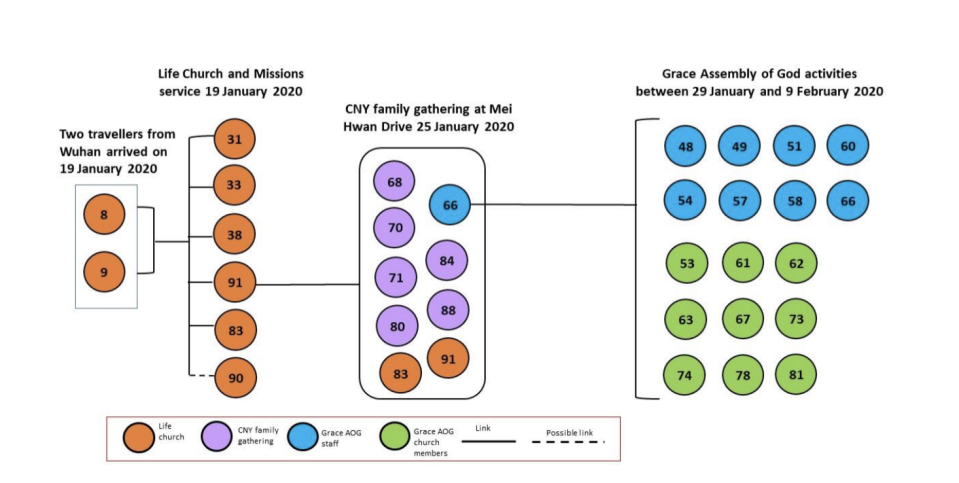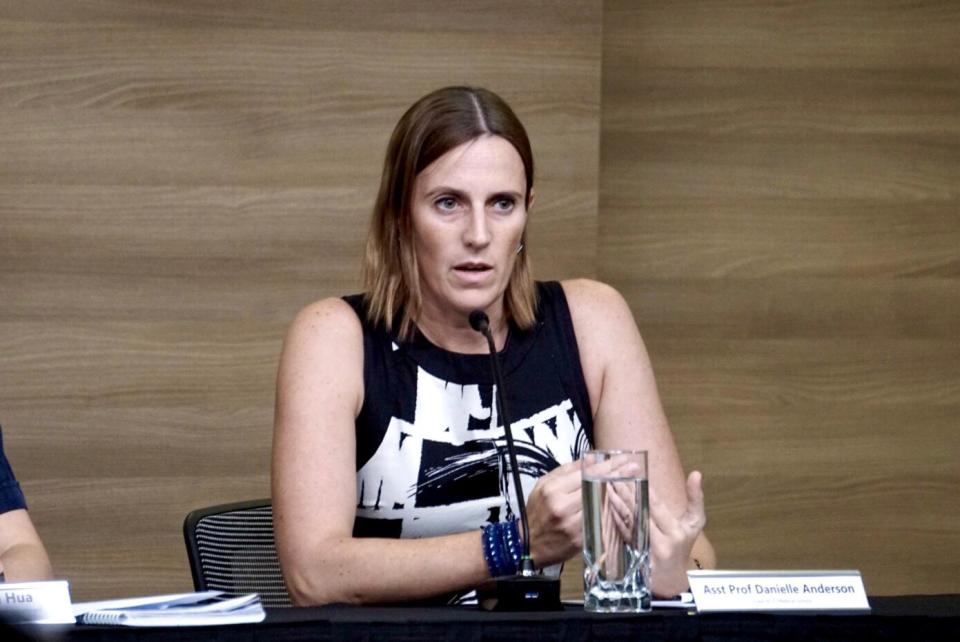COVID-19: Two church-related clusters linked through Chinese New Year family gathering
SINGAPORE — Two clusters of the COVID-19 coronavirus infection in Singapore have been linked through a Chinese New Year family gathering attended by those who were infected, the multi-ministry taskforce announced on Tuesday (25 February).
A couple - Case 83 and Case 91 - who had attended a church service at The Life Church and Missions on 19 January later attended a Chinese New Year gathering at Mei Huan Drive on 25 January. They then went on to infect seven others - family members and friends - who attended the gathering.
One of those who attended the gathering with the couple, a 28-year-old man, known as Case 66, then went on to infect his colleagues at the Grace Assembly of God Church between 29 January and 9 February. There are currently 23 cases within the cluster.
The sources of the infections were two Chinese nationals - a couple from Wuhan known as Case 8 and Case 9 - who attended the same Life Church and Missions Singapore church service as Case 83 and Case 91 on 19 January.
Case 83 is a 54-year-old Singaporean who was discharged on 21 February. Case 91 is a 58-year-old Singaporean woman.

Both had been well at the time of investigations. However, records with the Ministry of Health (MOH) showed that the woman had gone to the emergency department at the SengKang General Hospital a day after her Chinese New Year gathering with symptoms of the coronavirus. Case 83 had also been unwell in end-January and had repeatedly sought treatment at a general practitioner clinic.
Based on these records, the MOH epidemiology team arranged for the couple to be tested at the National Centre for Infectious Diseases with the use of new serological tests, which tests for the antibodies in a person’s body. The test carried out on the couple then found that they had been earlier infected with COVID-19.
Asked about the significance of the new link, taskforce co-chair and Health Minister Gan Kim Yong said, “I think it is important for us to do our best to establish a source of infection, so that we are then able to determine whether there were any other infections that could be caused by the same source.”
MOH director of medical services Kenneth Mak said, “If we are not able to determine the source, then there is a risk that the source is still in the community, and they may have other clusters.”
Tests to detect virus antibodies

Developed by Duke-NUS Medical School, the serological tests detect virus-specific antibodies produced by the immune system in response to the infection. These antibodies stay with recovered patients up to several years, said Assistant Professor Danielle Anderson of the Duke-NUS Medical School, who attended the press conference.
The Duke-NUS team had successfully cultivated the COVID-19 virus less than a week after Singapore confirmed its first case. Using the virus and genetic material from the virus, the team had managed to develop several tests to detect antibodies specifically from the virus for contact tracing.
The current laboratory test used in Singapore to confirm the COVID-19 infection is a molecular test known as Polymerase Chain Reaction, which detects the presence of the viral genetic material in a sample obtained from a patient. The test does not work if the patient has recovered.
When asked whether other countries are applying a similar test as the one in Singapore, Prof Anderson said that they use different tests to confirm COVID-19 infection.
Stay in the know on-the-go: Join Yahoo Singapore's Telegram channel at http://t.me/YahooSingapore
Related stories
COVID-19: Singapore confirms 1 new case; 5 discharged, 7 in intensive care
COVID-19: Bangladeshi worker's family to receive $10,000 donation
COVID-19: Avoid non-essential travel to South Korea's Daegu city, Cheongdo county, says MOH


